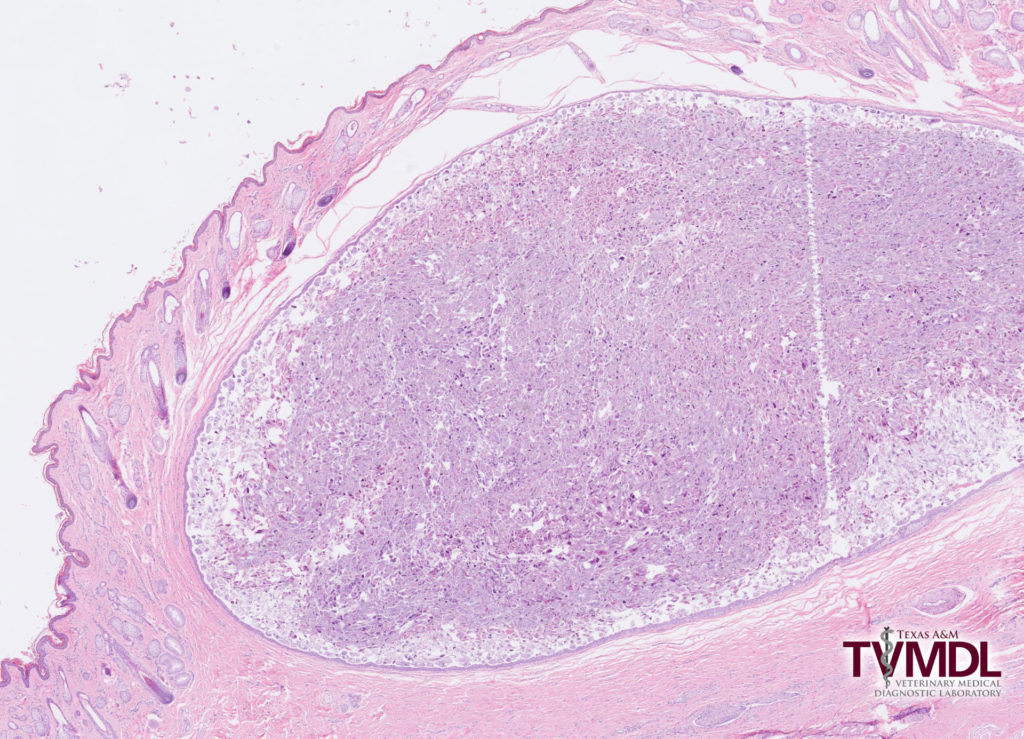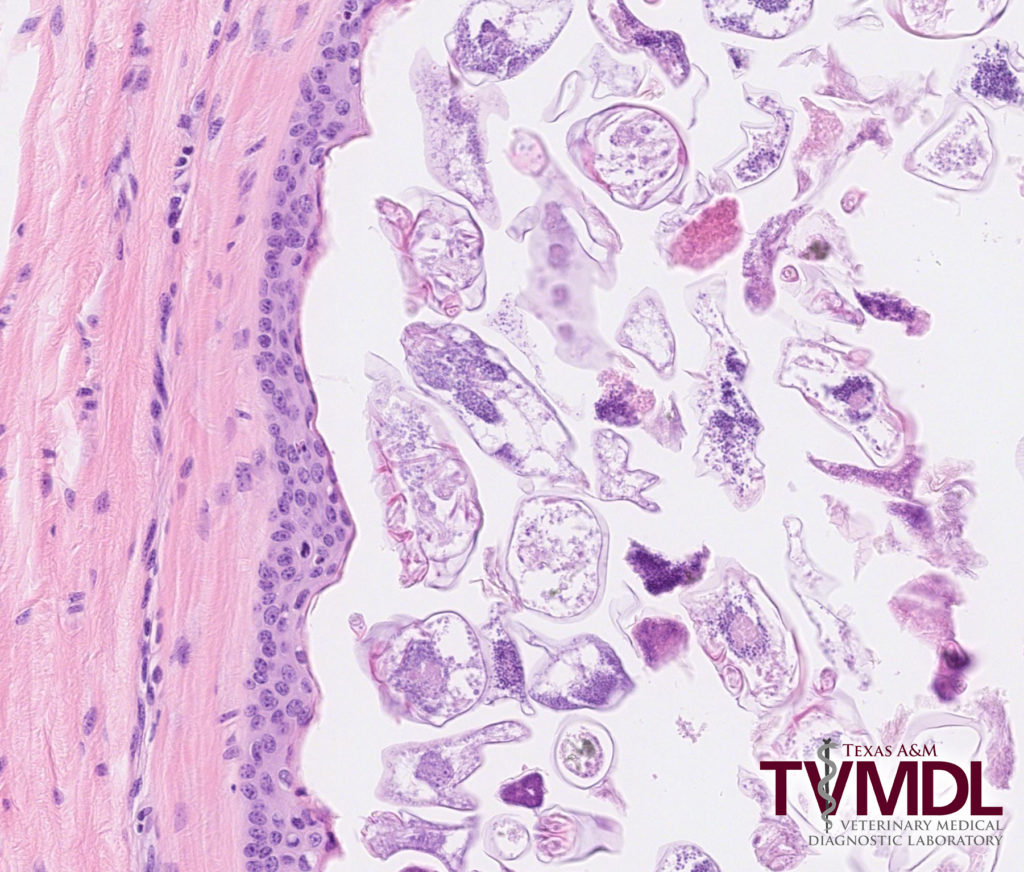Demodex mites discovered in a White-Tailed deer
Gabriel Gomez, DVM and Terry Hensley, MS, DVM
A haired skin specimen from a White-Tailed deer of unknown age was submitted to the Texas A&M Veterinary Medical Diagnostic Laboratory (TVMDL) for microscopic examination. The tissue was from a deer that had multiple cutaneous, firm, tan nodules. Microscopically, these tan nodules correlated with markedly dilated hair follicles that contained a large number of cross and tangential Demodex sp. mite sections. The epidermis in affected areas was moderately hyperplastic with hyperkeratosis and the dermis contained few lymphocytes, plasma cells, neutrophils and macrophages. The animal was diagnosed microscopically with demodicosis.
Demodex mites are commonly found in the hair follicles and sebaceous glands of most mammals. Demodexare, in general terms, regarded as host-species specific; however, some hosts can be infected with two or more species. Demodicosis can vary widely in clinical presentation and range from asymptomatic to hyperplastic dermatitis, alopecia and cutaneous nodules. Immunosuppression is seen in some small animals with demodicosis. Several cases have been observed in deer, particularly in the southeastern United States. The most commonly encountered species in White-Tailed deer is Demodex odocoilei. Mites consistent with D. odocoilei have been previously documented in a White-Tailed deer from eastern Texas.
References
- JC Turner and J. Cano Med. Entomol. 45(3): 572Ð575 (2008)
- MJ Yabsley, et. al. ISRN Parasitology. Volume 2013 (2013)

